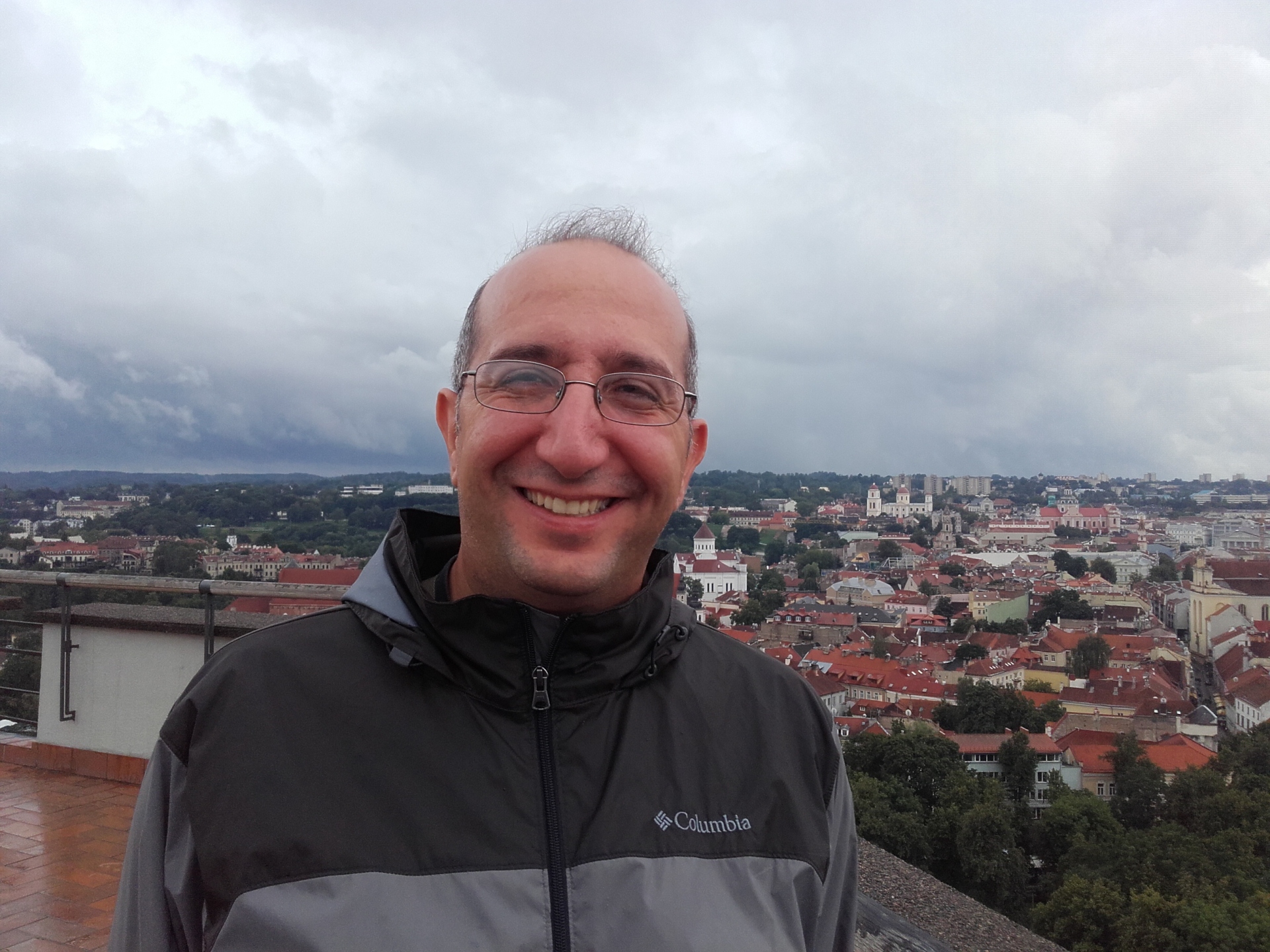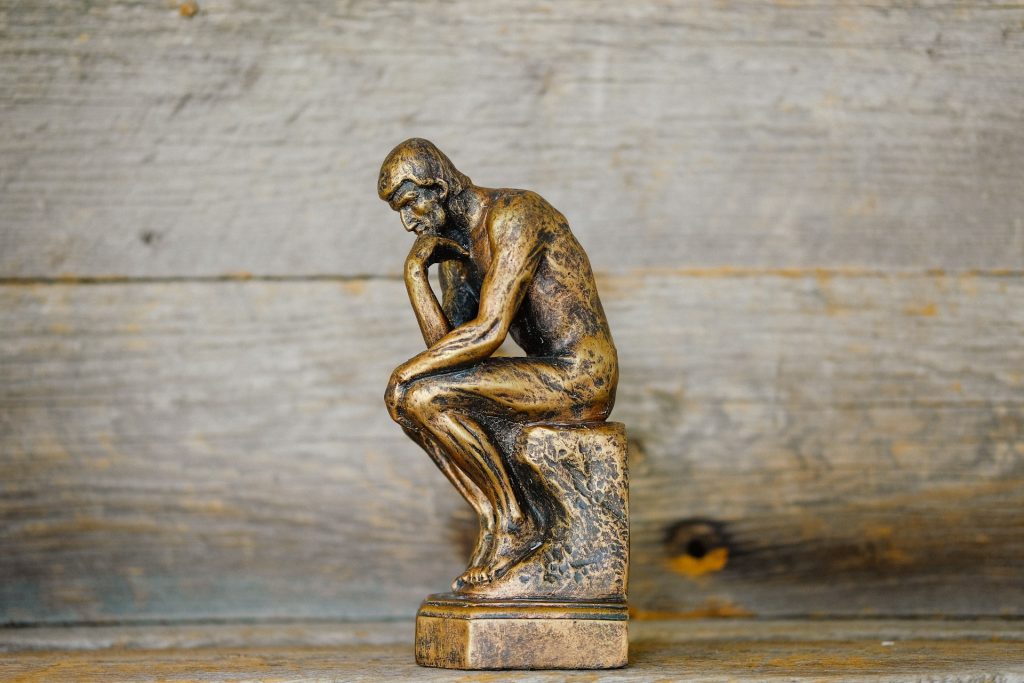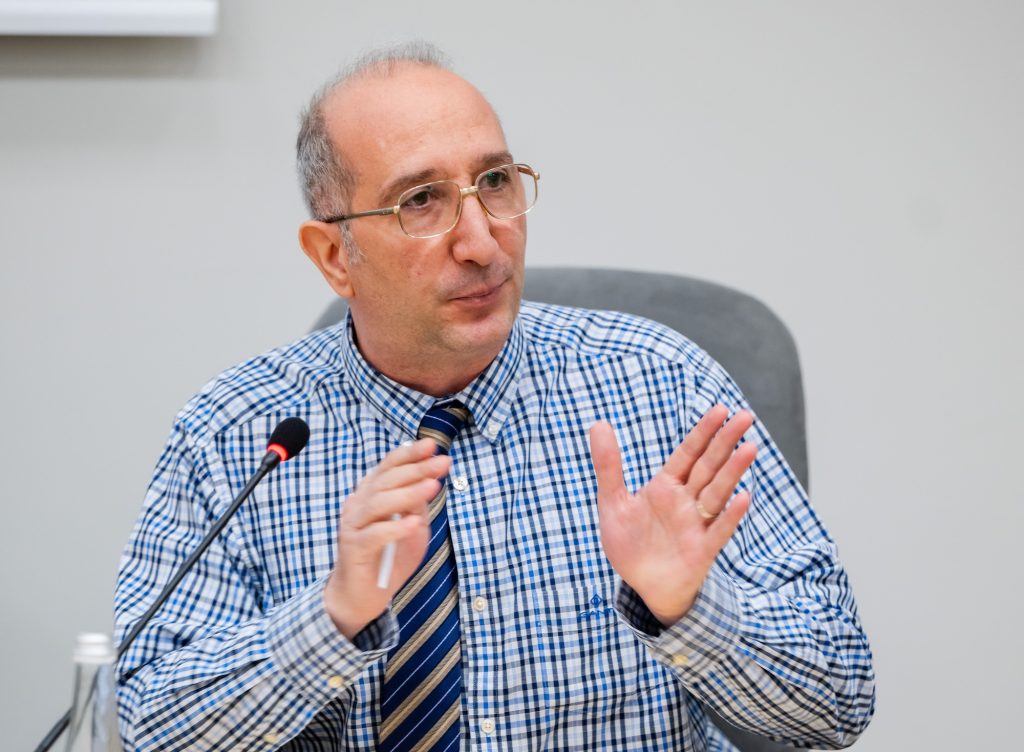Philosopher Oral: Čiurlionis is more than a Lithuanian artist

What can modern philosophers tell us about our society? How can the depth of philosophy be revealed in the painting of Mikalojus Konstantinas Čiurlionis? We talk about it with the philosopher of Turkish origin Dr. Şevket Benhür Oral, a professor at the Vytautas Kavolis Transdisciplinary Research Institute of Vytautas Magnus University.
What does it mean to be a philosopher? What is the role of philosophy in contemporary society?
The public discourse tends to oversimplify issues that affect how we think and how we behave. The philosopher’s job is to reveal the complexity of the issues that shape our present times and help us imagine future possibilities that are not necessarily within the scope of our everyday experience, because in our everyday lives we tend to be short-termists. So, philosophers work against short-termism, and our strength is to be able to ask big questions to see a complex picture.
The reverse is also true. Sometimes what appears complex needs to be simplified. Carl Sagan, the American cosmologist and science communicator, in his famous book “Pale Blue Dot: A Vision of the Human Future in Space” describes the image of the Earth taken by the Voyager 1 space probe from 6 billion kilometres, showing the whole planet, as a single Pale Blue Dot. It is a humbling experience. All our worries, all our endless fights and violence is taking place on this pale blue dot. But if you take a step back and look at the whole thing, that simplifies all this complexity, but in a positive way.
So, to me, philosophy is about the ability to discern when to simplify and when to desimplify; when to make the familiar unfamiliar and the unfamiliar familiar. Philosopher’s role is to make things that seem simple complex and to make things that appear complex simple.
But isn’t it easy to understand for everybody, not only philosophers that life as well as the world we live in is complicated?
Yes and no. For example, the existing economic system looks extremely complex, with a lot of inertia, vested interests, etc. But it is also not that complex. It is possible to see the structural impossibility of equality underlying all this complexity. Such a structural impossibility gets in the way of our capacity and will to take care of what is common to us all. It has become exceedingly difficult to reach a common understanding of what is common to us all.
I believe that social inequality makes everything so complicated…
But the structural impossibility of equality explains that whole complexity in a simple way. It is obscene that you must argue for the value of, say, having clean air or clean water or clean food or clean transportation systems. Equal access to education or healthcare, fair distribution of wealth and connection with nature. The value of arts and spirituality. You must argue for these things like these are good things. It should be obvious. But it is not.
The COVID-19 pandemic showed us how vulnerable the existing systems are and that they can be changed for the better. Of course, this sense that we can come up with something better didn’t last very long. The existing status quo re-established itself very quickly. But it showed us that, there is that possibility for the better. However, philosophy is not for providing comfort, but to be comfortable with its being uncomfortable.

One of the major philosophical issues you write about is ambiguity, which you attempt to explain by coining a term “granularity”.
Ambiguity requires that you’re comfortable with certain contradictions or certain paradoxical states of existence. You don’t try to find comfortable categories that are neatly separated from each other, like this is black and this is white. Binary structures are not really that binary, but they are porous.
Granularity is an ontology of ambiguity, which can help to explain the ambiguity in mathematics, physics, biology, psychology, or social life.
For instance, identities are porous. They are not always clear-cut. There is always more to an identity than the way it appears in a social-cultural-historical universe. Identities have depth. And the processes involved in identity formation are also porous. However, there is a strong tendency in the way we organize society to consolidate certain identities and transform their porosity to make them appear more compact than they really are. This is true for all types of identities: national, ethnic, gender, class, religious, and so on.
Granularity concerns the process of self-inquiry into these two tendencies of human experience: making things appear compact versus letting their porosity open up.
You specialise in the philosophy of education. What is the practical use of such philosophy?
Following the prominent educational philosopher Gert Biesta’s work, I would divide the goals of education into three domains of qualification, socialization, and subjectification. We get educated to have the requisite skills and knowledge to become a plumber, electrician, doctor, scientist, or whatever. This is qualification.
When we are introduced to the ways of existing in professional societies, or in the society or in different areas of the society, we are socialized into the ways of thinking, the ways of acting, the ways of behaving. This is socialization.
In general, educational systems tend to limit themselves to these two functions. What about subjectification, which means that individuals have certain autonomy outside of the existing orders of the society? They have freedom to not belong to or to resist belonging, go against the existing social order. That is kind of like the freedom of the individual or the autonomy of the individual to be able to exercise that capacity.
Subjectification is not about completed individuals but about individuation, which is an ongoing process. It is not something that can be completed. There is no final resolution to individuation. Education concerns the inherent ambiguity of being and the cultivation of openness to be infused with it. Subjectification must become a more explicit part of educational systems in a democratic world.

Dr. Şevket Benhür Oral.
You are a faithful admirer of Lithuanian painter and composer Mikalojus Konstantinas Čiurlionis, whose work also inspires you philosophically…
When I first visited Lithuania, my wife took me to Kaunas to see Čiurlionis’ museum, and since then, it’s almost like a pilgrimage for me, a kind of a special place in my heart.
To me, it is not so much about the themes or content of Čiurlionis’ paintings that are so extraordinary, but about the presence they communicate or the background that is invisible or deeper or absent. It’s like the quality, and we are immersed in that quality and that feeling. His paintings show that presence, but this presence comes out of a deeper, let’s say aesthetic field as Algis Mickūnas would say, or some sort of a field that remains invisible, and you are inside that.
So, what becomes visible? It is always emerging out of something invisible. His unique paintings are basically communicating that. That the invisible. The deeper dimension and how things emerge out of that is not clear cut.
His paintings are not like Cubists’, but his ambiguity also takes you back or takes you inside that invisible field. So, you can see the interaction between or the play of presence and absence.
For instance, his painting “Night”. There is not a thing called night. Night does not have a colour. There is darkness. A pervasive darkness. Darkness appears but it is not a thing. It is the beauty of the universe. You are in it as a dimension. You are encompassed by it. You are moved by it.
You stressed that you think that Čiurlionis is more than Lithuanian artist…
If you think about Čiurlionis himself, his biography, I mean, of course he’s considered to be the number one representative of the Lithuanian spirit, Lithuanian nation. But he cannot be reduced to being just Lithuanian. I am not Lithuanian, for instance. I had no idea about Čiurlionis’ until recently, but now I can relate to him so much. To me, his particularity and mine somehow intersect within some sort of universality, which is not immediately visible.
We can just think that, ok, Čiurlionis is a Lithuanian national hero, the greatest artist of this nation. He emerges from the Lithuanian landscape, from Druskininkai, Raigardas Valley he portrayed. I visited it as I just wanted to experience it myself because he was revealing something that is not just a physical landscape. Some aesthetic field or even spiritual field.
He is very subtle, with very peculiar skill revealing that interaction between what is present and what is absent. So he is, in a way, in my terminology, is revealing that ambiguity. So, his art is not just clear-cut drawing and passage or a landscape painting. He is revealing the spirit of the place. He doesn’t have this logical separation. Instead, he has this logic of this play of absence and presence. And there is that ambiguity.
But he is not just from Lithuania, we cannot reduce him to being a Lithuanian only. He comes from a region, a regional universe. He travelled a lot. During his time, he comes from a cosmopolitan universe and beyond those present national Lithuanian borders. Of course, he is very strongly identified with the Lithuanian roots, but that Lithuanian identity is the result of a matrix of regional and cosmopolitan universes, social, cultural, and historical.
But Čiurlionis’ and your current academic position at Vytautas Kavolis’ Institute is not the only connection with Lithuania?
My wife is from Lithuania, and we wanted to come and live in Lithuania for a long time. I met her in an academic conference in Porto in Portugal. I didn’t know much about Lithuania back then except for Arvydas Sabonis and philosopher Emanuelis Levinas.
After we got married, we started visiting Lithuania in the summers almost every summer. Eventually, after spending several years in the UAE, we decided, OK, it’s time for a new start, a new chapter, and I was asked to join the Kavolis Institute. We moved last summer.
How do you feel in Lithuania?
I feel wonderful. I mean, I really enjoy being in Lithuania. I’m a city boy, I grew up and lived in big cities. Vilnius is the right combination of being in the middle of nature, but also having access to urban facilities, urban culture, and urban environment.
So, it’s a very good environment for me because there’s peace and quiet and you can take only 10-15 minutes to the Old city or outside the town. And it is convenient for me to travel to my home country Türkiye. We would like to continue living in Lithuania as long as we can.
Dr. Şevket Benhür Oral, a philosopher of Turkish origin, is Professor at the transdisciplinary Institute of Vytautas Kavolis, currently also contributing to the activities of the University Excellence Initiative Project (SOCMTEP) carried out by the V. Kavolis Institute. He finished his PhD in curriculum and instruction with specialization in educational philosophy at Iowa State University, USA. He worked at Ozyegin University in Istanbul and TED University in Ankara, Türkiye, and Khalifa University in Abu Dhabi, United Arab Emirates.












